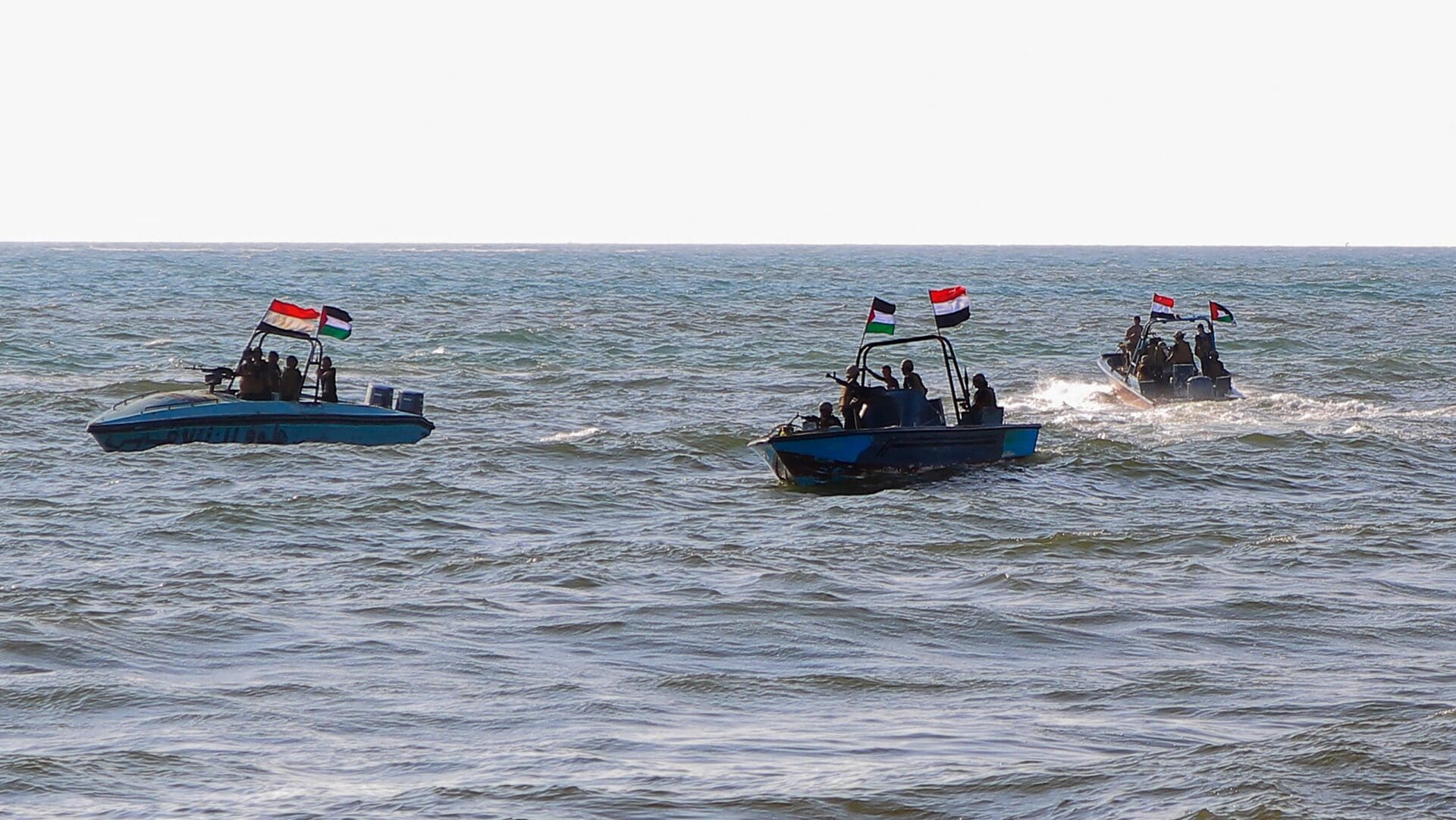After the conflict that erupted between Israel and the Palestinian terrorist organization Hamas on 7 October, Houthi rebels in Yemen have escalated their rocket and drone attacks on various Israeli targets. The targets of these attacks include cargo and merchant ships in the Red Sea, presumed to be bound for Israel or a country allied with Israel. Since October, Iranian-backed militias have launched numerous assaults on such targets, prompting several major shipping companies to opt for alternative routes to deliver their goods.
The gravity of the situation is underscored by the establishment of an international coalition, spearheaded by the United States, to secure this vital transport route. Houthi attacks are concentrated in the narrow sea passage between Djibouti and Yemen, known as the Strait of Bab el-Mandeb. This is not by chance, as 12–15 percent of global trade, valued at $1 trillion annually, traverses through the Strait.
Adding to its significance, the Strait serves as a crucial energy hub, facilitating the transport of around 10 per cent of the world’s crude oil and petroleum products, along with 8 per cent of liquefied natural gas.
After the formation of the coalition led by Washington in mid-December, initially comprising 10 states—now numbering well over 20—to safeguard carriers, it initially seemed that Western powers’ warships would provide ample security. However, it has become evident that Operation Prosperity Guardian is not fully equipped for the task. For instance,
a Houthi ship loaded with explosives recently detonated alongside a US warship,
following a warning from Washington and its allies for the Yemeni rebels to halt their activities or face ‘serious consequences.’ Last week, Iran also decided to deploy warships in the region. While this move might not be surprising, given that Iranian ships have been present in the area since 2009, any small mistake, misinterpreted signal, or miscalculation could result in unforeseeable consequences.
In addition to the risk of further escalation, the activities of the Houthis have other adverse effects that directly impact global trade, thus affecting Europe. Numerous shipping companies, including major players like the Danish Maersk, the German Hapag-Lloyd, and the Mediterranean Shipping Company, have opted to postpone their shipments until the situation is resolved or choose alternative routes. The latter involves ships bypassing Africa, navigating through the Cape of Good Hope in South Africa, and sailing up the coast of West Africa to reach European ports—extending the journey by approximately 6,000 kilometres (3,720 miles).
This incurs substantial additional costs, with some estimates reaching up to a million dollars per trip, and extra time, ultimately contributing to a surge in the prices of goods, commodities, and energy.
’There has been an immediate volatility in oil prices and the prices of some other commodities that transit through the affected region, but it takes a while for these fluctuations to translate into what consumers pay,’ Marco Forgione, Director General at the Institute of Export & International Trade, explained as reported by Politico.
Global crude oil prices surged during the initial attacks and early in the New Year, with Brent crude’s per barrel price, for instance, rising by 2 percent in the first days of 2024 due to tensions in the Red Sea. As fuel is derived from oil, a rise in oil prices typically translates to higher costs at the petrol stations. The impact on commodities is already evident, with Sweden’s IKEA announcing at the end of last December that certain products would face shortages due to supply chain disruptions. Additionally, the CEO of the UK clothing company Next recently stated that they are preparing for stock shortages of specific garments due to extended delivery times. This trend could extend to nearly all clothing companies, given that most source their products from Asia. The negative effects are not sparing Israel either. The Food Industries Association of the Jewish state has issued a warning, stating that without emergency measures, the population will face severe food shortages in the coming weeks.
One important factor has not been discussed yet.
The rise in transportation costs could also have a significant inflationary impact.
During the pandemic, for instance, according to calculations by the International Monetary Fund, supply chain disruptions added about one percentage point to inflation. However, the negative effects of the current situation in this regard seem to be delayed.
This is attributed to the disinflationary measures implemented across Europe. According to Politico, higher interest rates are already reducing demand, especially for goods imported from Asia. Taxes are being raised across Europe to address excessive budget deficits, further diminishing demand. Higher oil prices are likely to lead to lower consumption. However, collectively, these factors increase the likelihood of an economic recession, which we might experience globally later this year.
Hungary’s stance on the issue has remained consistent since October, with the government advocating for de-escalation and tension reduction. In a Facebook post, Foreign Minister Szijjártó emphasized Hungary’s commitment to peace in the Middle East, urging caution against escalation. Regarding the recent terrorist attack in the Iranian city of Kerman, the Foreign Minister expressed Hungary’s hope that the region will avoid a new spiral of violence, emphasizing the potential unforeseeable consequences.
Related articles:








